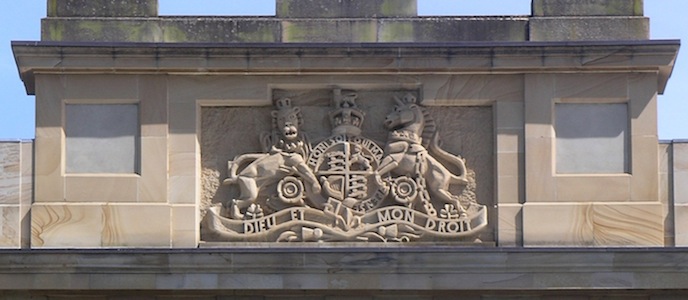The voters have spoken: they care about climate and environmental issues and they want this to be expressed in the makeup of Parliament. But there’s an obstacle — the attitude of Labor and Liberal leaders to those not-so-new kids on the block, the Greens. [30 March 2010 | Peter Boyer]
Hare-Clark — what a wonderful voting system! Where else do you get so much time to chew over the outcome and all its permutations while waiting for final results to be nailed down? With this year’s tight contest the airwaves are fairly buzzing.
It’s said that for every two economists there are four opinions. I’d multiply that by ten to get the figure for Tasmanian election analysts. The possibilities are endless. We can get an idea of trends from the count, but we really don’t know for sure until all preferences are distributed.
It’s one thing to be a mere voter speculating on the outcome; it’s another altogether to be a participant caught up in all the uncertainty. I don’t envy the politicians, who are feeling the pressure that much more keenly. But they all knew what they were getting themselves into.
Hare-Clark is one of many proportional representation systems used around the world. Voting for Australia’s Senate uses this formula, but what makes Hare-Clark unique is the way it favours voting for individual candidates. It’s that local, individual flavour that endears it so many Tasmanians — and which drives party heavyweights mad.
Compare the Tasmanian elections with the outcome in South Australia, where the result was just as tight and voters’ intentions no less complex than in Tasmania. Where we’re still waiting for results, the South Australian outcome was pretty well known by the close of counting on polling day.
But what Hare-Clark lacks in prompt outcomes it more than makes up for in fairness. The Rann Labor government in South Australia achieved an absolute majority even though the Liberals overall had greater support. In Tasmania the final outcome in seats tends to reflect much more closely the intentions of voters.
Democracy is a high-wire balancing act. It needs to produce results that reflect voters’ intentions, and it requires both voters and politicians to accept the outcome, however disagreeable. Hare-Clark has delivered the first requirement. All we need now is for the outcome to be accepted, but that somehow has to get round the machinations of the major parties.
Broadly, the election delivered the Liberals about 39 per cent of primary votes, Labor about 37 per cent (each party nearly two-fifths of the total) and the Greens about 21.5 per cent, or a bit over one-fifth. That tells us that Liberal and Labor can each expect somewhere near 10 seats and the Greens five (with the further possibility of one of the seats going to Denison independent Andrew Wilkie).
It also tells us that the environment figured prominently in the campaign. In addition to the Greens’ vote, candidates with environmental credentials achieved a further two per cent of the vote. For close to a quarter of electors, in other words, an environmentally-aware Parliament mattered more than anything else.
This is not a new or unexpected development. The Greens have been a significant player in Tasmanian politics for a quarter of a century. Twice before they have held the balance of power, albeit for shortened electoral terms, and they remained a significant voice despite the bigger parties’ cynical manoeuvre to wipe them out by cutting the size of Parliament.
The electorate has said it wants Parliament to take environmental policy seriously. But traditional centres of power apparently see things differently: both David Bartlett and Will Hodgman have said they won’t discuss deals with the Greens. “No deals would include no Greens in my ministry,” said Hodgman. Whatever the voters said, it seems this is a matter for the Big Boys.
Neither Bartlett nor Hodgman is a single player in this drama. It’s reasonable to assume that others behind the scenes are urging them to make these pronouncements — party power-brokers with anti-Green axes to grind, such as Michael Field and Eric Abetz. Whatever the situation, in this power-play the big losers are the will of the people and good environmental policy.
It’s not hard to see why the Liberal and Labor leaders are behaving this way. Neither wants the Greens to hang around. Like all their predecessors they want the floor to themselves, the way it was in the good old days when you knew who and where your enemy was, on the other side of the chamber.
But if the party hacks want to know why Labor lost its outright majority, and why the Liberals failed to gain one, they need look no further than the one-in-five vote for the Greens — a vote for an environmentally responsible Parliament. And of all environmental issues, the biggest one is action on climate.
This was a vote for change, but not of the kind sought by the Liberal Opposition. It was a vote for a cooperative Parliament, where all party leaders put old animosities aside, decide what policies are important to them and what can be conceded, determine who can govern and who will form an opposition, and then get on with what they were elected to do.
Two of the three party leaders must agree on forming government. Bartlett and Hodgman have to try harder. If neither can find common cause with Nick McKim and the Greens, then the only option is a Labor-Liberal coalition. That unlikely arrangement may cut across traditions, but at least it would offer a clear future choice on environmental policy.

